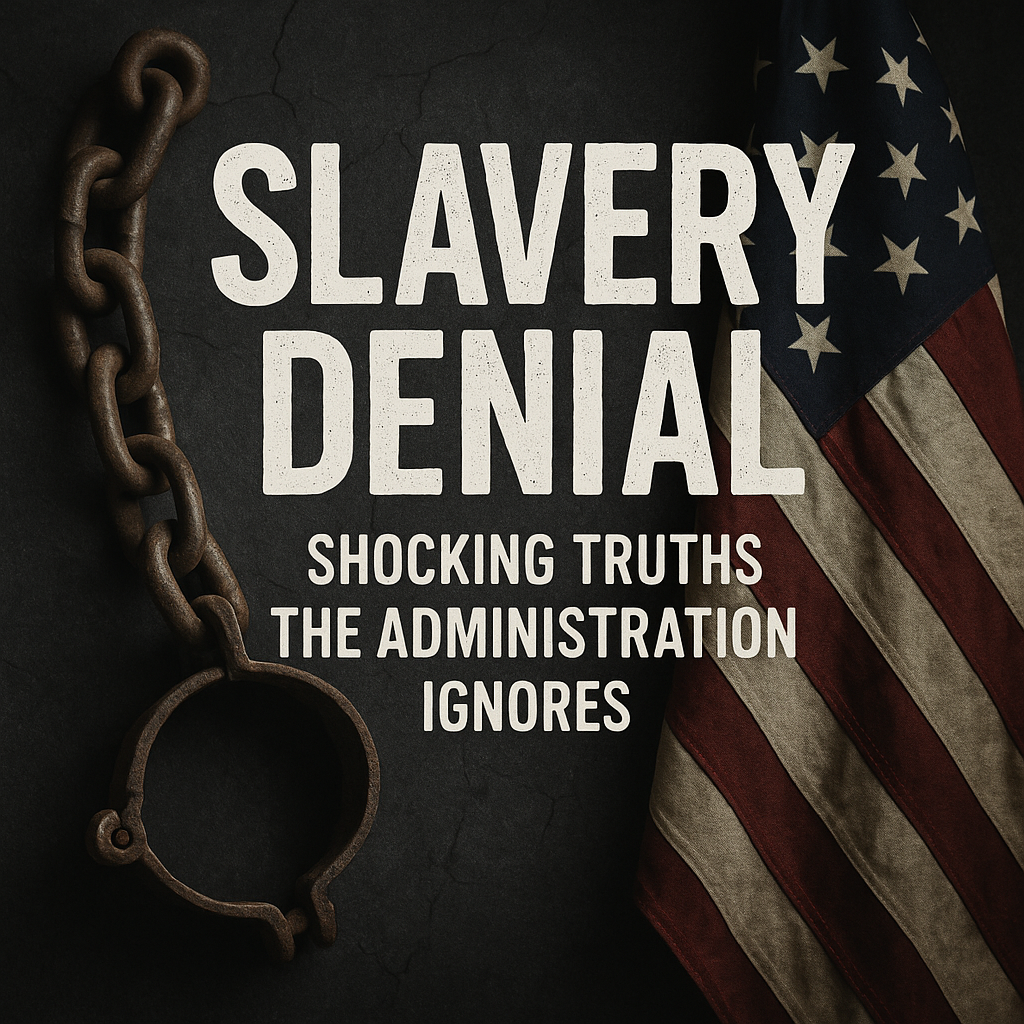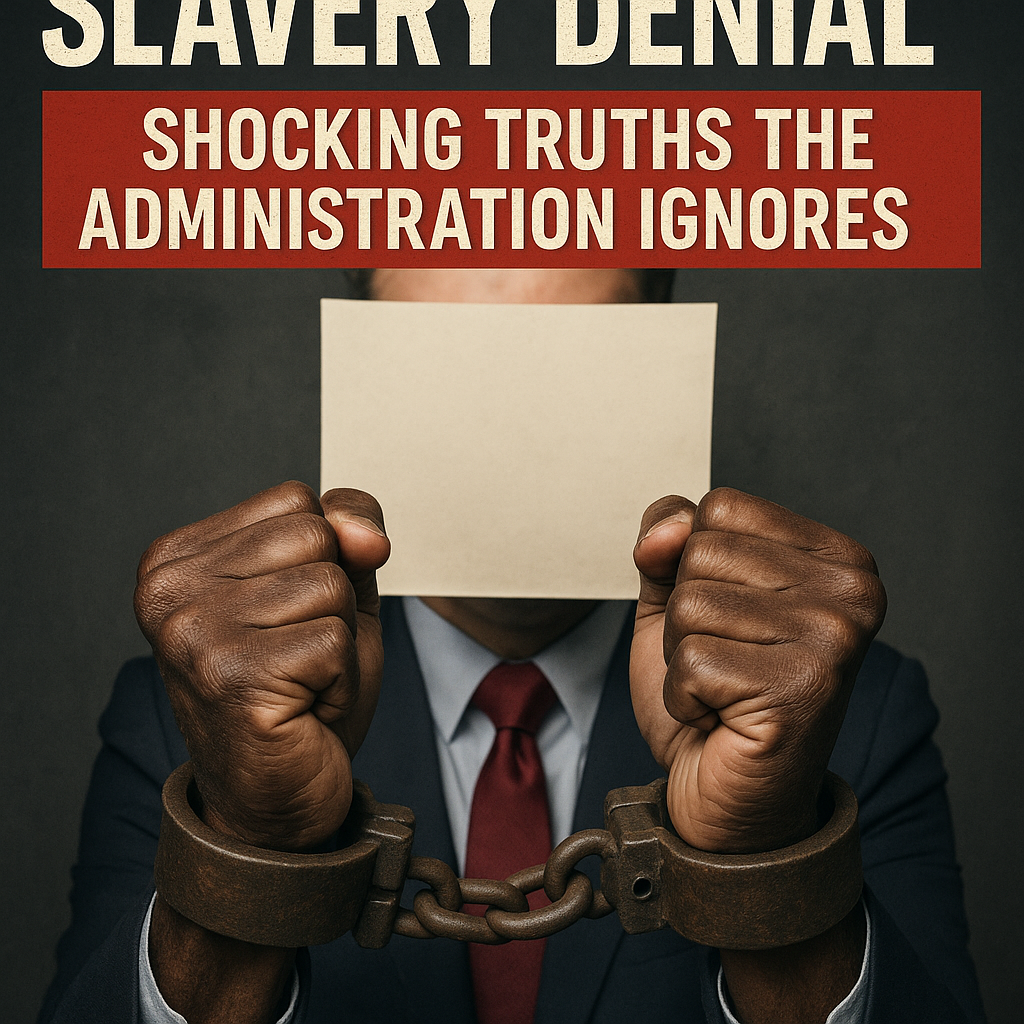Slavery Denial: Shocking Truths the Administration Ignores
Slavery Denial: Shocking Truths the Administration Ignores
Slavery denial remains a potent issue in contemporary discussions surrounding race and history, particularly as various administrations attempt to navigate the complex legacies of America’s past. The ongoing reluctance to confront the uncomfortable truths about slavery can lead to a sanitized version of history that fosters misunderstanding and perpetuates systemic inequities.
Understanding Slavery Denial

Slavery denial can manifest in various ways, from minimizing the impact of slavery on American society to outright rejection of its historical existence. A recent article from the Atlanta Daily World contends that some government entities exhibit a willingness to overlook or downplay the profound ramifications of slavery—treatment that many see as an affront to the affected communities.
Citing a combination of scholarly research and firsthand accounts, the article highlights how various educational and political platforms sometimes adhere to a narrative that limits or distorts the historical realities of slavery. The result is a population that may lack a comprehensive understanding of the injustices endured by African Americans and the systemic inequalities that persist today.
Diverse Perspectives on History Education
A recent report from The Atlanta Voice sheds light on contrasting views regarding how American history, particularly slavery, is taught in schools. Advocates for a more inclusive educational curriculum argue that the denial of slavery’s impact not only misinforms students but also shapes a society that is ill-equipped to address ongoing racial disparities.
However, some political figures suggest that highlighting slavery in education could incite division rather than understanding. This belief rests on the assumption that discussing such painful histories could result in an unproductive blame culture, detracting from current societal progress. Critics of this viewpoint argue that “truthful education should never be viewed as divisive; acknowledging painful histories provides a pathway to healing.”
The Role of Reputable Sources
Delving deeper into the issue, an analysis of multiple reputable news sources highlights a consensus among historians and educators: the consequences of neglecting slavery’s significance are detrimental to societal cohesion. Some proponents of more accurate historical representation assert that acknowledging the past helps to inform critical dialogues around race and equality in America today.
Empirical data supports this perspective. When students are provided with a fuller depiction of historical narratives, they demonstrate increased cultural competence and empathy, essential qualities for an increasingly diverse society. A study published by an educational think tank reports that school curriculums tailored to include comprehensive accounts of slavery better prepare students for real-world interactions.
Yet, the tension continues. Political commentary from various quarters suggests an uphill battle is inevitable. A disconnect exists between grassroots movements advocating for change and the bureaucracies that often resist these calls due to political ramifications.
The Path Forward: Seeking Truth in Education
As discussions surrounding the legacy of slavery evolve, one fundamental question arises: How can future generations be equipped with a realistic understanding of American history? The answer lies in fostering educational environments that embrace a wide range of narratives, encouraging critical thinking and open dialogue.
Here are several recommendations for addressing slavery denial and enriching historical education:
– Develop Comprehensive Curriculum: Schools should include diverse perspectives covering the atrocities of slavery alongside the contributions of African Americans throughout history.
– Encourage Open Discussion: Creating safe spaces for dialogue about race and inequality can help students confront uncomfortable truths while promoting understanding and empathy.
– Support Multidisciplinary Approaches: Engaging disciplines such as literature, sociology, and history can provide a more nuanced understanding of the legacy of slavery and its modern implications.
– Invite Diverse Voices: Including historians, community leaders, and activists in educational discussions can offer invaluable insights and alleviate the feeling of isolation in sensitive conversations.
In summary, acknowledging the often-overlooked realities surrounding slavery is not just an academic exercise but a necessary step toward healing societal wounds. By engaging with the complexities of history and embracing diverse viewpoints, we can facilitate a more equitable and informed society.
In closing, confronting the truths about slavery is essential. It is a painful part of our collective history that demands recognition and understanding, rather than denial. Only through honesty and education can we hope to build an inclusive future.















